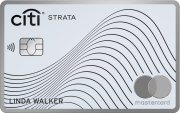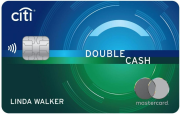The content on this page is accurate as of the posting date; however, some of the offers mentioned may have expired.

It might be a surprise for you but a single stay at a hotel, a car rent, gas purchase or house cleaning service can leave the available credit on your card drained or even overdrawn. This is quite embarrassing and frustrating when the lack of credit leads to your credit card being denied next time you wan to make a purchase.
Meanwhile, it is quite legal and the case when you find yourself on low funds shortly after a hotel stay is referred to as "card blocking". What is this "block" and why do businesses resort to it when accepting your credit card as a form of payment?
It is not only the modern consumer's whim to pay for a hotel stay or car rental with a high-limit credit card and get rewards for that. It has become a requirement with most big service businesses that a customer provides his/her credit card prior to the actual payment.
In short, when you book a room at a hotel, the clerk requires your card number, determines a likely total payment amount and asks the card issuer to block this amount from your credit limit. By doing this, the clerk ensures that you do not exceed your credit available due to unplanned spending and pay the whole bill after you check out of the hotel.
As a matter of fact, the merchant, a car rental company or hotel owner, does not take that amount out of your account straight after you check in or rent. The money remains there but is temporarily prevented from being spent for other purposes.
Such a proactive measure is easily understandable by consumer groups and credit unions, no matter how bitter it might be for a cardholder. Frequent are cases when a customer, before returning the car rental or paying the hotel bill, goes on a spending spree and leaves the merchant unpaid.
Credit card blocking is a smart solution to this problem and is equally approved by both credit companies and businesses. And why not? The blocking does no harm to your credit score, nor is it reflected in your credit report unless you do default on the payment.
So, what's wrong about it then? Why does your credit card get denied sometimes after the blocking was imposed? The thing is, if you are short of credit available or near your credit limit and you do not know about the blocking practice, it may lead you to exceed your credit limit. It happens that you are sure you have quite an amount on you card and you can spend it freely. You are really happy about going shopping until you're informed your plastic is not accepted anymore.
How can you avoid such embarrassing situations? Learn the following tips:
- If you're just going to apply for a credit card, find out if the issuer applies "block". Different companies offer different block periods, so it would be reasonable to have a shorter block.
- Booking a hotel room or renting a car, ask if the company "blocks", find how much and for how long. It will keep you from spending more than you actually can afford before you complete full payment.
- If you decide to pay the final bill with a debit card, check or cash, inform the clerk about it, so that the block is removed from your account.
If you forget to remind the clerk about a different form of payment, the block may remain unnoticed and you will soon exceed your credit card limit, which will entail hefty penalty fees and increased rates.





